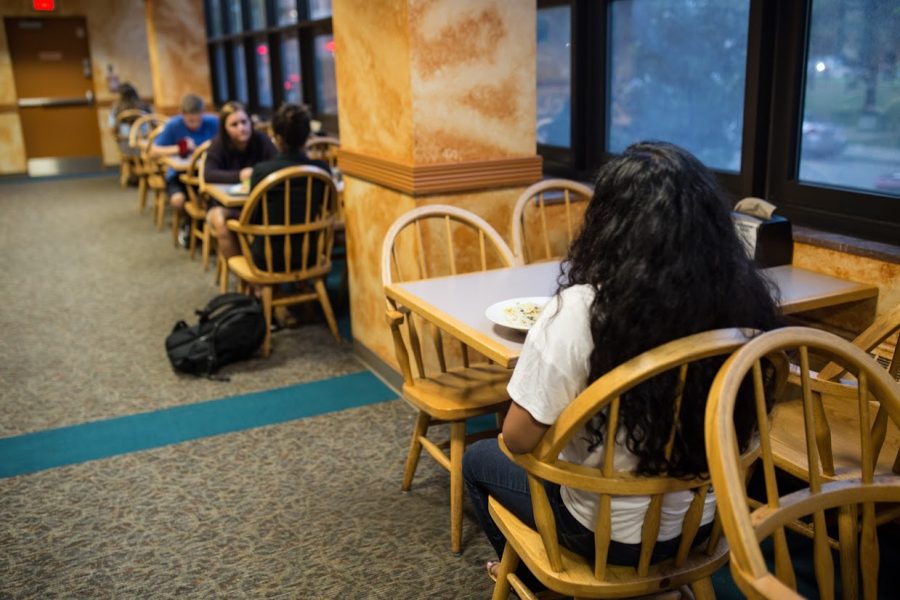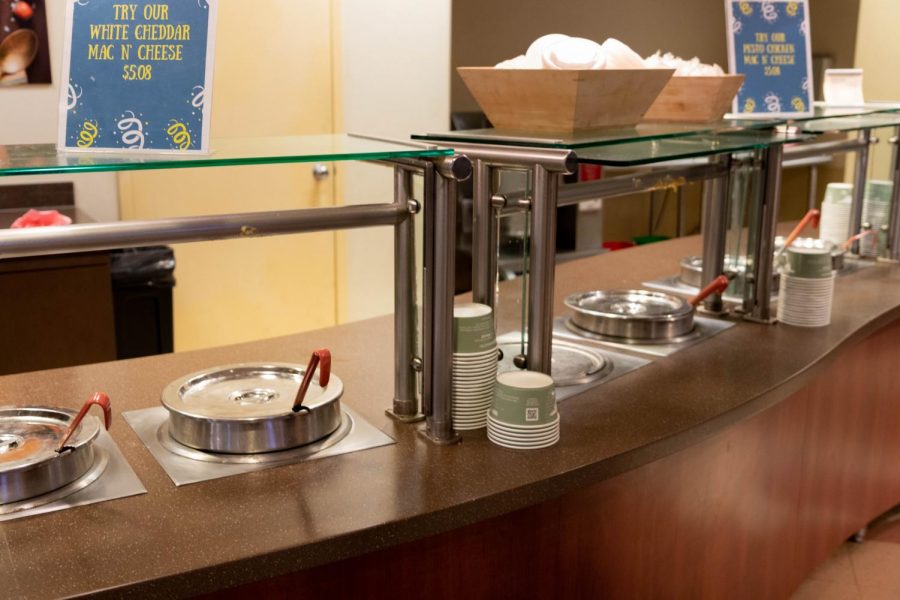You’re right in the midst of the lunch rush at the AMU. The lines are out of control, and you’re holding on to your chicken tenders for dear life as you bump into people on your way out. You sit down at a table packed with friends, but as you scan the crowded dining area, you notice that some people are eating by themselves.
What is your immediate reaction to this? Do you feel sorry for them?
There is a huge stigma surrounding lone eaters. Culturally, eating is an activity that is strongly community-based. Americans are brought up in a longstanding tradition of family dinners, pizza parties and church potlucks. We are taught that food brings people together and only unpopular kids sit alone in the lunchroom.
Reveling in this collectivist ideology are people who thrive off the energy of others and recharge best in the middle of a dynamic crowd.
Both extroverts and introverts, however, without even realizing it, make snap judgments: single diners must be lonely, their friends are gone, so on and so forth.
As a loner, you’re aware that this judgment exists. When I know I’ll be eating alone, I avoid the dining halls, opting instead for the Brew or another quiet place. Or, if I have to, I’ll bring a book with me to make it look like I’m studying; no one judges single diners if they’re studying.
However, sometimes I enjoy eating alone. Unlike those who draw energy from others, many need to be by themselves in a quiet place to recharge, and a mealtime can be ideal for that.
This isn’t to say I don’t love a table packed with friends and family, but every once in a while I’d rather take a moment to myself to savor my food and think.
It’s time to squash these stigmas around dining alone. The reason these attitudes are so embedded in our culture is some of the stigma is rooted in historical dining traditions.
A website called Restaurant-ing through history published an article last year discussing how following the Civil War, it became only proper to have a dinner companion. In the late 1800s, in fact, some restaurants even refused to serve solo female diners, considering it tawdry for them to go out unescorted.
This changed with the onset of chain restaurants like lunchrooms and diners, according to a New York Times article. These places provided a more welcoming, informal atmosphere for single diners and especially women.
Modern society has progressed recently in getting rid of single-diner shaming; a 2015 Open Table study shows that reservations made by single diners have gone up 62 percent.
However, my self-consciousness while hiding behind a book and eating a sandwich proves the movement has yet to reach campuses like Marquette.
From Mashuda omelets to Straz stir fry, here’s the bottom line: don’t deny yourself a pleasant meal just because you don’t have someone to share it with. Don’t be afraid to be alone. You are your own best company: if you can’t enjoy a nice evening with the person that matters most (again, you), how can you ever be an engaging dinner companion to someone else?
I’m not advocating for people to rebuff any well-meaning friends who sit down to keep them company, but to embrace time alone if you have no one to sit with. Be brave, have the confidence to show yourself and the rest of the dining hall that you are a more than sufficient companion.






